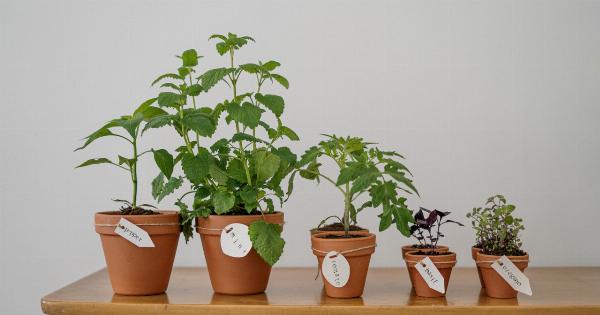Digestion is a complex process involving the breakdown of food into smaller particles that can be absorbed by the body. However, a variety of factors can affect digestion, including diet, lifestyle, and stress levels.
Poor digestion can lead to discomfort, bloating, and other digestive issues. In this article, we’ll explore tips and tricks for improving digestion:.
1. Eat a Balanced Diet
Eating a balanced diet that includes a variety of fruits, vegetables, whole grains, lean protein, and healthy fats can help improve digestion.
These foods are rich in fiber, vitamins, and minerals, which can support the digestive system and aid in the breakdown of food.
It is also important to avoid foods that are high in sugar, saturated fats, and processed ingredients, as these can be difficult for the body to digest.
2. Chew Your Food Properly
Chewing your food properly is an important step in the digestion process. When food is chewed well, it is broken down into smaller particles that are easier to digest.
Chewing also stimulates the production of digestive enzymes in the mouth, which can aid in the breakdown of food further along the digestive tract.
3. Stay Hydrated
Drinking enough water is crucial for proper digestion. Water helps to soften stools and move them through the digestive tract, preventing constipation.
It also helps to keep the digestive system hydrated, making it easier for food to be broken down and absorbed.
4. Exercise Regularly
Regular exercise can help improve digestion by stimulating the muscles of the digestive system. This can help to move food through the digestive tract and prevent constipation.
Exercise also increases blood flow to the digestive system, which can promote healthy digestion.
5. Reduce Stress
Stress can have a negative impact on digestion by slowing down the digestive process. Chronic stress can also lead to inflammation in the digestive tract, which can cause digestive issues such as bloating and discomfort.
To reduce stress, try incorporating relaxation techniques such as deep breathing, meditation, and yoga into your routine. It is also important to make time for activities that you enjoy and to prioritize self-care.
6. Use Digestive Enzymes
Digestive enzymes are supplements that can help aid in the breakdown of food and improve digestion. They are especially helpful for individuals who have difficulty breaking down certain types of foods, such as lactose or gluten.
7. Eat Fermented Foods
Fermented foods such as yogurt, kefir, sauerkraut, and miso contain beneficial bacteria known as probiotics. These bacteria can help to improve digestion by promoting the growth of healthy bacteria in the gut and aiding in the breakdown of food.
8. Avoid Overeating
Eating large meals or consuming food too quickly can put a strain on the digestive system, leading to discomfort and digestive issues such as bloating and gas. It is important to eat slowly and mindfully, allowing the body to properly digest food.
9. Consider Food Sensitivities
Sensitivity to certain foods can cause digestive issues such as diarrhea, bloating, and discomfort. If you suspect that you have a sensitivity to a particular food, consider eliminating it from your diet and see if your symptoms improve.
Common food sensitivities include gluten, dairy, soy, and nuts.
10. Seek Medical Advice
If you experience chronic digestive issues such as abdominal pain, diarrhea, or bloating, it is important to seek medical advice.
These symptoms can be indicative of a more serious underlying condition such as irritable bowel syndrome or inflammatory bowel disease.































